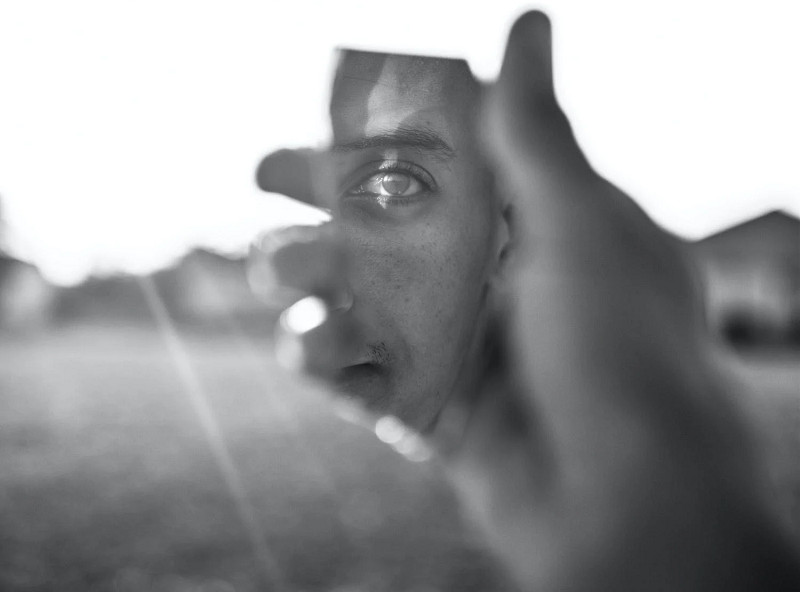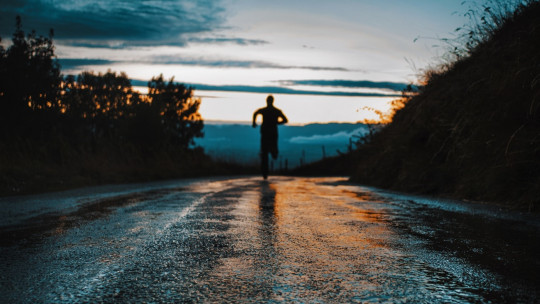
Surely it happens to more than one person that it is very difficult for them when they try to talk about themselves. It’s not because he doesn’t want to or because he’s shy, but because he really has a hard time describing himself, defining himself, saying who he is.
It is comfortable to use labels such as our profession, our nationality, political ideology… identifications that are just that, labels, like the ones we put on products on a supermarket shelf. They are useful for quickly identifying ourselves, but they do not acquire true psychological depth.
If we want to describe ourselves well, we first have to know ourselves well, knowing who we are, what we want and where we are going. First you have to reflect on yourself and have reached a high level of self-knowledge.
And that is precisely what this article is about, how to improve our knowledge about ourselves. Next we will discover several habits to enhance self-knowledge Don’t miss them!
The importance of knowing yourself
Many times we ask ourselves the question “who am I?”, a question as transcendental as it is difficult to answer. Not being clear about who we are usually comes with deep discomfort, a feeling that is linked to uncertainty and the fear that our lives have no meaning.
Things can go further, plunging us into an existential crisis because not knowing ourselves deprives us of knowing what we want where we are going and what we offer to society.
One of the keys to personal development is self-knowledge, knowledge that also gives us psychological well-being because by being clear about who we are we also end the uncertainty of searching for meaning in our lives, what our value is as people and, we also acquire stability. Get to know us in depth It helps us regulate our emotions, relate in a healthier way with others and focus on achieving our goals
Throughout this article we are going to learn about a few habits to enhance our self-knowledge, in addition to reflecting on the importance of knowing ourselves very well.

Recommended habits to boost self-knowledge
As we said, self-knowledge is key to psychological well-being People who know themselves deeply know what they want in life, and not only in big projects but also in the most everyday things. Having great knowledge is linked to knowing how to better manage our emotions, even in the most difficult moments. They know how to adapt to adversity, since their psychological world is very well stabilized.
It is inevitable to talk about self-knowledge without mentioning Emotional Intelligence, a construct that has been resonating in the field of Psychology for some time and that is increasingly having a greater impact. self-knowledge It can be considered the starting point to become an emotionally intelligent individual Knowing your own emotions and knowing what they mean is an act of self-reflection that improves our mental health.
Self-knowledge is essential for personal development, helping us to set realistic goals and find where we are in our life path. For this reason, personal development strategies help people connect with themselves and find out what motivates them, what their desires and goals are with which they believe they will achieve happiness.
Once we understand the importance of self-knowledge in our mental health and also how it helps us in our personal development, it is time to look at some habits that can help us enhance it.
1. Write an emotional journal
A classic that helps us know ourselves is writing a diary, an autobiography built day by day in which we explain how we feel, our beliefs, desires and other constituents of our personality
Writing an emotional diary is essential to enhance self-knowledge because it makes us think about what we have done during the day and can help us how we have felt and, if we reread it, it offers us feedback about our emotions and what produces them.
2. Write down your virtues and defects
This habit that seems like a simple task is, paradoxically, one of the most complicated. There are few people who know 100% what their virtues and defects are, because they have never reflected on them and, of course, if you have never thought about them you will not know what they are.
Proof of how little we usually know our strengths and weaknesses is that, when we go to a job interview, if the interviewer asks us about them, we remain blank, not knowing what to answer, even though they have asked us about something. what we are supposedly experts on is ourselves.
The best way to avoid this and get to know ourselves better is to find out what our strengths and weaknesses are. To do this, we can take a piece of paper and write them down, a task that will take us a long time but will certainly make us reflect on who we are and, also, realize what needs to be improved
3. Make the wheel of life
A well-known tool to improve self-knowledge is the so-called wheel of life. This is a personal development technique, which consists of draw a circle and choose between 8 and 10 areas of our life that we want to change or improve such as studies, friendships, family, work, leisure…
The good thing about this technique is that it allows us to reflect on our priorities since, once the areas of life that we consider the most important have been chosen, we have to assign them a number based on our order of preference. Then, We must begin to write down the actions that we consider we should carry out to change our lives
4. Ask someone to describe you
On many occasions we believe that we see ourselves the same as how others see us, but this is rarely the case. On many occasions, people perceive us in a way so different from ours that it could be said that there are two “Is”, the one we believe and the one others believe. With this in mind, it can be very helpful to ask someone if they can give us an honest description of what they think we are like.
Naturally, the person who will know us best is going to be ourselves, but sometimes others see things in us that escape us, traits and quirks that we do not realize but that constitute our personality. With what others tell us we can build a more realistic image of who we are
- You may be interested: “The 28 types of communication and their characteristics”
5. Don’t let anyone tell you what you are or what your goal is.
Many people take the liberty of telling us what is “convenient” for us, without us having asked them or even if they are right. These individuals often advise us, try to guide us, direct us, and decide for us who we are, even though the only people who have the true ability to discover it to its full extent are ourselves.
Only you can decide who you are and what your purpose in life is If you achieve this, you will begin a process of deep self-knowledge in which you will free yourself from what you think you are and you will begin to form a new personality, more related to what is really going to make you happy and not with those appearances that you have been building for yourself. over the years to satisfy others.
- Related article: “Assertiveness: 5 basic habits to improve communication”
6. The line of life
An interesting habit to enhance our knowledge is to use the life line technique, which It consists of drawing a horizontal line that, as its name suggests, represents our life In it we will mark a midpoint that represents the now and, then, we will begin to include those situations and experiences that we have experienced in the past.
The second part consists of fill in part of the future, pointing out our closest objectives and those furthest away in time Having just put everything in line with life, the next step is to reflect on what we have experienced and how we intend to achieve and achieve the goals we have set for the future.
7. Practice yoga
Many yogis affirm that the greatest benefit that yoga provides is the opportunity to know ourselves better. This traditional spiritual discipline It helps us calm our mind and carry out deep introspection, seeing how we really are and acting from there
The practice of yoga not only involves the body, but also addresses the mind and emotions. It has been seen that yoga improves attention, motivation, decision making, emotional management and memory. The regular practice of this discipline offers us a space of connection with ourselves that, taking into account the stressful world in which we live, we usually find it difficult to find anywhere else
- Related article: “The 6 psychological benefits of yoga”
8. Psychological therapy
All the habits that we have seen at this point can serve as support to enhance your self-knowledge, improve your mental health, your self-esteem and promote your personal development. However, The habit that undoubtedly enhances our self-knowledge the most is psychological therapy
Psychotherapy gives us the necessary tools to become aware of aspects that go unnoticed by our consciousness but that may be evident to the therapist. The psychologist will help us see those characteristics that define us and, if they are harmful, will help us obtain the necessary tools to improve them.
In addition, psychological therapy can help us work on other problems that we may be going through that may be affecting our personal development.








